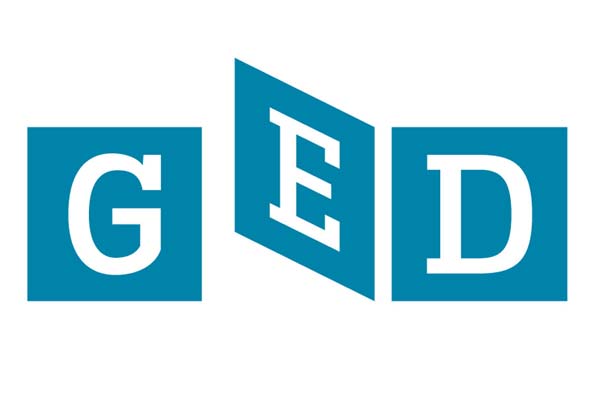Does Harvard Accept GED? Everything You Need to Know
Harvard University is one of the world’s most prestigious and sought-after institutions. Thousands of students apply to this Ivy League school every year, hoping to secure a spot in its hallowed halls.
However, not all applicants have a traditional high school diploma. Some may have obtained a General Educational Development (GED) certificate instead. The question is, does Harvard accept GEDs?
The short answer is yes, Harvard does accept GEDs. The university does not require a high school diploma or GED for admission.
However, it is essential to note that having a secondary education degree, such as a high school diploma or GED, is still highly valued by Harvard. This is because it demonstrates a specific academic achievement and preparation for college-level work.
Does Harvard Accept GED
Harvard University is one of the most prestigious universities in the world, and many students aspire to attend this Ivy League institution. However, not all students have the traditional high school diploma, and they may wonder if Harvard accepts GED diplomas.
The answer is yes, Harvard does accept GED diplomas. Harvard does not require a high school diploma or GED for admittance. However, a secondary education degree is essential, and having a GED can demonstrate that a student has achieved this level of education.
It is important to note that Harvard has a highly competitive acceptance rate, with only around 4.6% of applicants being accepted.
While having a GED will not necessarily disqualify a student from being accepted, it is crucial to have a robust application overall, including high test scores, impressive extracurricular activities, and strong letters of recommendation.
In addition, Harvard meets 100% of the demonstrated financial need for all admitted students, including those who have earned their GED. This means that financial aid is available to help cover the cost of tuition, room and board, and other expenses.
GED and the Ivy League
Ivy League Acceptance of GED
Many believe Ivy League schools only accept students who graduated from prestigious high schools.
However, this is different. Ivy League schools, including Harvard, accept GED graduates if they meet the same academic standards as other applicants.
🌟 Hey Students! 🚀 Ready for the ultimate experience? Join us on Studentsinside.com's Facebook, YouTube, WhatsApp, and LinkedIn. Click now for tips, fun, and success vibes! 🌈✨ #StudentLife #JoinUs
While Ivy League schools do not require a high school diploma or GED, they require applicants to complete a rigorous curriculum.
This means that GED graduates must have taken math, science, English, and social studies courses to be considered for admission.
GED Graduates in Ivy League Schools
GED graduates who are admitted to Ivy League schools often excel academically and go on to become successful professionals. Many Ivy League schools actively recruit GED graduates because they bring a unique perspective and work ethic to the student body.
Ivy League schools also provide various resources and support to GED graduates to ensure their success. For example, many schools offer tutoring and academic counseling to help GED graduates adjust to the academic rigor of college.
Application Process for GED Holders
GED holders interested in applying to Harvard should follow the same process as any other applicant. However, there are some important considerations to remember when applying as a GED holder.
Standardized Test Requirements
Harvard requires all applicants, including GED holders, to submit the SAT or ACT. However, there is no minimum score required for admission, and Harvard does not have a preference for one test over the other. GED holders should aim to achieve the highest possible score on their chosen test to strengthen their application.
Common and Coalition Application
GED holders can apply to Harvard using the Common Application or the Coalition Application. Both applications require applicants to provide personal information, academic history, and extracurricular activities.
GED holders should indicate that they have earned a GED and provide any relevant information about their high school education.
It’s important to note that Harvard does not require applicants to provide high school transcripts or diplomas, even if they have not earned a GED.
However, GED holders should be prepared to provide additional information about their education and relevant work experience to demonstrate their academic ability and potential.
Transfer and Scholarship Opportunities
Transfer Applicants with GED
Harvard College accepts transfer students from other similar liberal arts programs. Transfer applicants should have a current GPA of at least 4.18 and submit standardized test scores.
Students can apply for admission as either a sophomore (2nd year) or junior (3rd year) student.
The deadline for all transfer applications is March 1st each year, and successful applicants can begin their studies in the fall term of the same calendar year.
It’s important to note that admitted transfer students cannot defer their admission.
Certainly! You’re in luck if you have a GED and aspire to transfer to Harvard! Harvard does welcome GED graduates. It’s important to highlight that Harvard doesn’t mandate a high school diploma or a GED for admission.
Consequently, GED holders must fulfill the same admission criteria as transfer applicants.
Scholarships for GED Holders
Harvard College offers a range of scholarships to help students pay for their education. For GED holders, there are several scholarship opportunities available:
- The Harvard College Scholarship: This scholarship is awarded to students based on financial need. Students must submit the CSS Profile and the FAFSA to be considered.
- The Harvard Transfer Scholarship is awarded to transfer students with exceptional academic achievement. Students must have a minimum GPA of 3.5 to be considered.
- The Harvard National Scholarship: This scholarship is awarded to students who are National Merit Finalists or National Hispanic Scholars. Students must indicate on their application that they are a finalist or scholar to be considered.
While it’s essential to be aware that there might be limited scholarship options for individuals with a GED, it’s still highly encouraged for GED holders to seek and apply for scholarships and financial aid actively.
This can significantly assist in managing the expenses associated with attending Harvard College.
Comparison with Other Universities
When it comes to accepting GED diplomas, Harvard University is not alone. Many other prestigious universities in the United States and worldwide also welcome applicants with a GED.
MIT, NYU, and Stanford’s GED Policies
Harvard, MIT, NYU, and Stanford all accept GED diplomas from applicants. However, each university has its specific policies and requirements for GED applicants.
MIT requires GED applicants to submit their scores from the GED test and scores from either the SAT or ACT. NYU also requires GED applicants to submit either SAT or ACT scores, personal statements, and letters of recommendation.
Stanford does not require GED applicants to submit SAT or ACT scores but does require them to submit a high school transcript or GED score report, as well as letters of recommendation.
GED Acceptance in the UK and India
Outside the United States, the policies for accepting GED diplomas can vary widely depending on the country and university. For example, many universities in the United Kingdom accept GED diplomas from American applicants but often require additional qualifications or exams.
In India, GED diplomas are not widely recognized or accepted by universities, and applicants may need to complete additional coursework or exams to be considered for admission.
GED and Community College Pathway
Community college provides an excellent opportunity for those who have earned their GED and wish to further their education.
Community colleges are open enrollment, meaning they accept students regardless of their educational background. This makes them an ideal choice for GED holders who may have a different high school diploma.
You can attend a community college to earn credits if you have a GED. Later, you can transfer those credits to a four-year university. Many community colleges have agreements that make this transfer process easier.
GED holders must meet the requirements of regular high school graduates to enroll in a community college. This means completing an application, showing proof of high school or GED completion, and taking required tests.
GED holders who plan to enroll in community college should also know the GED College-Ready and College-Ready Plus Credit scores. These scores can be used to demonstrate college readiness and earn college credits.
Here are some key points to keep in mind for GED holders considering the community college pathway:
- Community colleges are open enrollment and accept students regardless of their educational background.
- Enrolling in community college can allow GED holders to earn college credits and transfer to a four-year university.
- GED holders must meet the exact admission requirements as traditional high school graduates, including submitting an application and providing proof of high school completion or GED completion.
- GED College-Ready and College-Ready Plus Credit scores can be used to demonstrate college readiness and earn college credits.
Challenges and Misconceptions
GED and Academic Rigor
One of the misconceptions surrounding the GED is that it is an easy way out for individuals unwilling to put in the effort required to complete high school.
The GED tests are challenging and intentionally equivalent to high school courses. They assess your knowledge of math, science, social studies, and language arts.
According to the American Council on Education, which manages the GED, the test checks if you have the knowledge and skills expected of a high school graduate.
While it is true that the GED is an alternative to a high school diploma, it is not a more accessible alternative. Individuals pursuing a GED must still put in the time and effort required to study and prepare for the exams.
Additionally, they must demonstrate academic rigor and proficiency equivalent to high school graduates.
Negative Outlook on GED
Another challenge facing individuals with a GED is some people’s negative outlook toward the credential. There is a common misconception that individuals with a GED are less qualified or less capable than those with a high school diploma.
This negative perception can make it challenging for GED holders to find employment or gain acceptance into higher education institutions.
However, this negative outlook is only partially accurate. While it is true that some employers and colleges may prefer applicants with a high school diploma, many others recognize the value and rigor of the GED.
Some employers and colleges actively recruit individuals with a GED, recognizing the hard work and dedication required to earn the credential.








